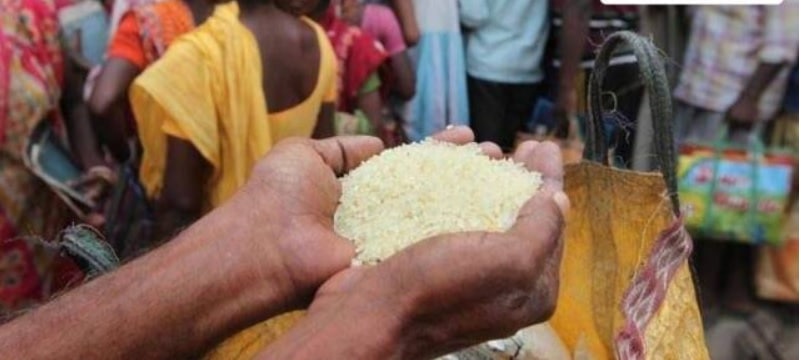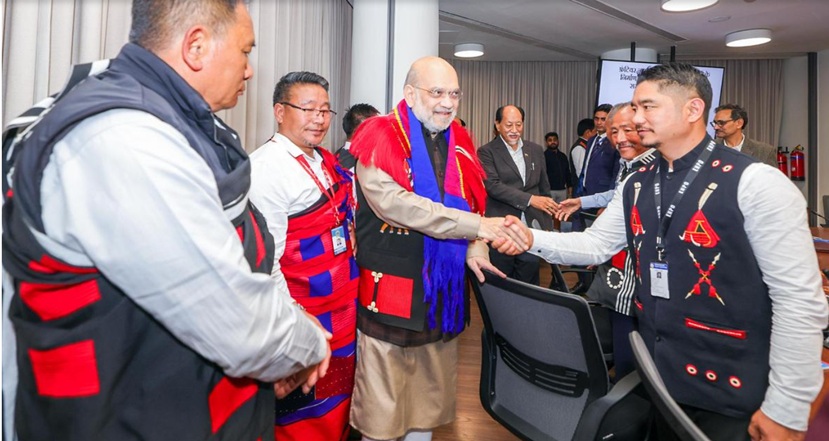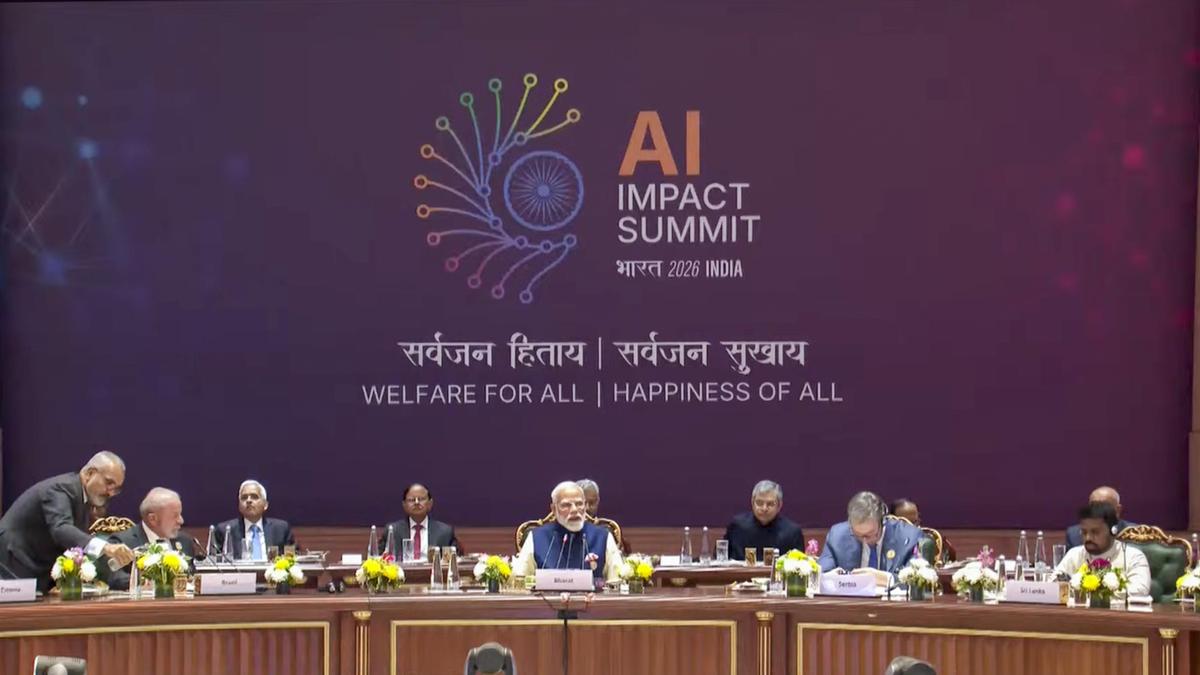What’s in today’s article?
- Why in news?
- What is Food Corporation of India (FCI)?
- What is e-Auctions by FCI?
- News Summary: No takers for FCI rice in e-auction to check inflation
- Karnataka’s Anna Bhagya scheme and procurement of rice through FCI
- Why Centre directed FCI against selling grains to state governments?
Why in news?
- Recently, the Centre discontinued sale of rice to states including Karnataka under the Open Market Sale Scheme – Domestic (OMSS-D).
- It had asked the Food Corporation of India (FCI) to e-auction grains in the market to control rising prices.
- However, there were not many buyers for this auction as FCI received bids for only 170 metric tonnes despite 3.86 lakh metric tonnes of rice on offer.
What is Food Corporation of India (FCI)?
- It is a statutory body set up in 1965 (under the Food Corporation Act, 1964) under the Ministry of Consumer Affairs, Food and Public Distribution, Government of India.
- It was set up against the backdrop of a major shortage of grains, especially wheat, in the country.
- Currently, FCI is mandated with three basic objectives:
- To provide effective price support to farmers;
- To procure and supply grains to PDS for distributing subsidised staples to economically vulnerable sections of society; and
- Keep a strategic reserve to stabilise markets for basic foodgrains.
What is e-Auctions by FCI?
- Background
- e-Auctions by FCI are part of Open Market Sale Scheme (OMSS).
- Under the OMSS, the FCI sells surplus food grains from the central pool, especially wheat and rice in the open market to traders, bulk consumers, retail chains, etc., at predetermined prices.
- The FCI does this through e-auctions where open market bidders can buy specified quantities.
- The OMSS aims to enhance the supply of food grains (ensuring food security) during the lean season and thereby moderate the open market prices (controlling inflation), especially in the deficit regions.
- e-Auctions by FCI are part of Open Market Sale Scheme (OMSS).
- June 2023 order regarding e-auction
- In June 2023, government directed the FCI to conduct the e-auctions of wheat and rice to check the inflationary trends in prevailing retail prices.
- This step was a part of market intervention to control the price of wheat and rice.
- Earlier, the States were also allowed to procure food grains through the OMSS without participating in the auctions, for their needs.
- This was beyond what they used to get from the central pool to distribute to NFSA (National Food Security Act) beneficiaries.
- However, the order released by the central govt in June 2023 decided to exclude State Govts’ scheme from the ambit of OMSS(D).
- In June 2023, government directed the FCI to conduct the e-auctions of wheat and rice to check the inflationary trends in prevailing retail prices.
- Requirements for participation in e-auction as per the June 2023 order
- The declaration in the Wheat Stock Monitoring System portal is mandatory for participation in the auctions.
- This is to control the hoarding of wheat.
- In addition to this, in order to identify the genuine processors and traders, the valid FSSAI License has also been made mandatory for participation.
- In these auctions, only private players can participate, and not state governments.
- The declaration in the Wheat Stock Monitoring System portal is mandatory for participation in the auctions.
- Key features of e-auction as highlighted in June 2023 order
- The maximum quantity that a buyer can bid for is limited to 100 MTs in this e-auction.
- To accommodate the small wheat processors and traders, the minimum quantity has been kept to 10 MTs.
- The bidding is also limited to the local buyers by ensuring that the GST registration of the State is mapped and checked before stocks are released.
- These measures are taken to ensure a wider local reach for the stocks offered in a particular State.
News Summary: No takers for FCI rice in e-auction to check inflation
- In the e-auction on July 5, FCI offered to sell 3.86 lakh metric tonnes of rice across 19 states and NEF (North East Frontier) region.
- FCI, however, received bids in three states — Maharashtra, Gujarat and Karnataka – and the NEF Region.
- No sale happened in the remaining 16 states.
Karnataka’s Anna Bhagya scheme and procurement of rice through FCI
- Earlier, in June 2023, the Karnataka government had sought 2.28 lakh metric tonnes from FCI to provide 10 kg food grains per person per month to all BPL families free of cost under the Anna Bhagya scheme.
- Initially, FCI had agreed to supply around 2.22 lakh metric tonnes.
- However, the Union Ministry of Consumer Affairs, Food and Public Distribution, directed FCI against selling grains to state governments.
- As a result, the FCI cancelled its orders to allocate rice to Karnataka.
Why Centre directed FCI against selling grains to state governments?
- The FCI had enough stock to meet Karnataka’s request for rice. But, as per analysts, two issues probably weighed on the Centre’s mind.
- One, if prices rise then FCI should have enough stock to effectively intervene in the market.
- Two, what if other states make similar demands — with elections round the corner, political parties can make promises, and then knock at FCI doors for more grains.
- If other states start demanding additional quantities of rice for their schemes like Karnataka, it will become very difficult to meet their demands.
Q1) What is the National Food Security Act (NFSA)?
The National Food Security Act (NFSA) is a landmark legislation passed by the Government of India in 2013 with the aim of ensuring food security for the population. The NFSA is a comprehensive act that seeks to provide subsidized food grains to eligible individuals and families, especially those who are economically disadvantaged and vulnerable.
Q2) What is Food Safety and Standards Authority of India (FSSAI)?
FSSAI stands for the Food Safety and Standards Authority of India. It is an autonomous body established under the Ministry of Health and Family Welfare, Government of India. The primary responsibility of FSSAI is to regulate and supervise food safety and standards in India.
Source: After refusing rice to Karnataka, FCI finds no takers in e-auction | PIB | The Hindu | Economic Times
Last updated on February, 2026
→ UPSC Notification 2026 is now out on the official website at upsconline.nic.in.
→ UPSC IFoS Notification 2026 is now out on the official website at upsconline.nic.in.
→ UPSC Calendar 2026 has been released.
→ UPSC Final Result 2025 is expected to be released in the second week of April 2026.
→ Check out the latest UPSC Syllabus 2026 here.
→ Join Vajiram & Ravi’s Interview Guidance Programme for expert help to crack your final UPSC stage.
→ UPSC Mains Result 2025 is now out.
→ UPSC Prelims 2026 will be conducted on 24th May, 2026 & UPSC Mains 2026 will be conducted on 21st August 2026.
→ The UPSC Selection Process is of 3 stages-Prelims, Mains and Interview.
→ Prepare effectively with Vajiram & Ravi’s UPSC Prelims Test Series 2026 featuring full-length mock tests, detailed solutions, and performance analysis.
→ Enroll in Vajiram & Ravi’s UPSC Mains Test Series 2026 for structured answer writing practice, expert evaluation, and exam-oriented feedback.
→ Join Vajiram & Ravi’s Best UPSC Mentorship Program for personalized guidance, strategy planning, and one-to-one support from experienced mentors.
→ Check UPSC Marksheet 2024 Here.
→ UPSC Toppers List 2024 is released now. Shakti Dubey is UPSC AIR 1 2024 Topper.
→ Also check Best UPSC Coaching in India




















